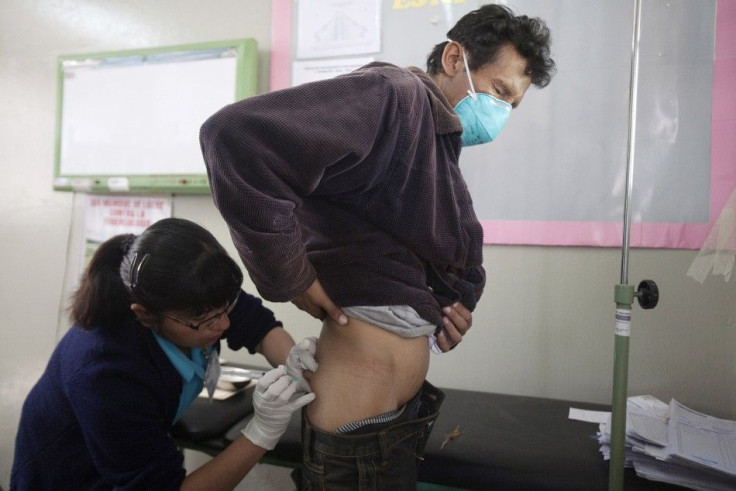Drug-Resistant Tuberculosis On The Rise: WHO Researcher

Drug-resistant tuberculosis is on the rise in Europe and Asia from a combination of misdiagnoses and fragmented health care, according to a World Health Organization researcher.
Tuberculosis is a treatable lung infection that causes chest pain, coughing, weight loss, fever and night sweats, according to the Centers for Disease Control and Prevention. If left untreated, half of people infected with TB die.
In places where health services are fragmented or underfunded, or patients poor and health professionals ill-trained, that treatment can fall short, which can in turn lead to patients developing drug-resistant strains, Dr. Paul Nunn, head of the WHO's global TB response team, told the Guardian.
TB is treated with a combination of antibiotics over six months, which can be expensive. If treatment is stopped, the bacteria can surge and mutate into a strain that cannot be killed by conventional drugs.
The cost of drugs leads to a vicious cycle, Nunn said. The new drugs developed to combat antibiotic-resistant TB are overpriced for people who really need them, which can lead to even more people becoming infected with antibiotic-resistant strains.
In some areas we have probably already lost the battle. Globally, [drug-resistant TB] is still just 5 percent of the total number of TB cases, but with sloppy management of treatment we are moving towards an accelerating problem, Nunn said.
Though the number of TB cases in the United States has steadily declined since 1992, the disease is on the rise in the United Kingdom. Health authorities reported more than 9,000 new cases in 2011, compared with 8,500 in 2010, according to the U.K.'s Health Protection Agency.
TB continues to disproportionately affect those in hard to reach and vulnerable groups, particularly migrants, so it is crucial that we have specific strategies in place to address this, Ibrahim Abubakar, head of the TB section at the HPA, said in a statement. Abubakar suggests targeting TB prevention advertisements at high-risk groups.
The majority of antibiotic-resistant TB cases occur in India. Approximately 20 percent of all drug-resistant cases of TB and a quarter of all TB infections worldwide are found in India, according to the Associated Press.
Almost 99,000 people are infected with drug-resistant TB in India every year, according to the Associated Press. An Indian hospital saw the first cases of totally drug-resistant TB, a virtually untreatable form of the disease, in January.
© Copyright IBTimes 2025. All rights reserved.





















